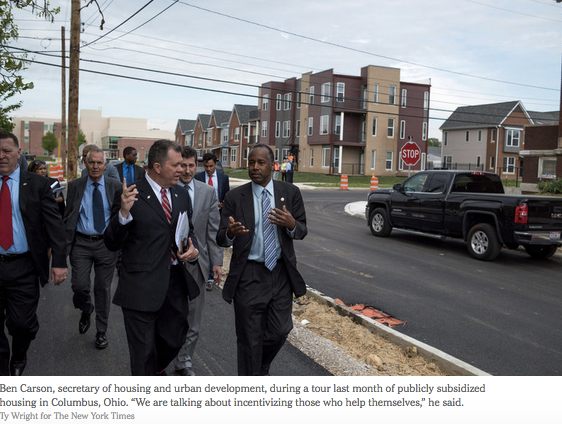When Representative Mo Brooks said it was unfair that healthy “people who lead good lives” should have to subsidize the insurance of unhealthier ones who presumably don’t, he bluntly raised an often unspoken question that runs through policy debates in Washington: Who deserves government aid and who does not?
Such proposals can be — and often are — couched in the language of economics, with advocates and critics calculating the efficacy of incentives, returns on investment and long-run savings. As Ben Carson, the Trump administration’s housing secretary, commented last week while touring publicly subsidized housing in Columbus, Ohio, “We are talking about incentivizing those who help themselves.”
But the judgment of who is deserving — as opposed to what is most effective — is at heart a moral one.
In pushing for repeal of the Affordable Care Act last week, Mr. Brooks, an Alabama Republican, suggested that people with pre-existing conditions deserved to pay higher premiums, because they had not “done things the right way.” That could include a cigarette smoker’s lung cancer — or a newborn’s congenital heart disease.




